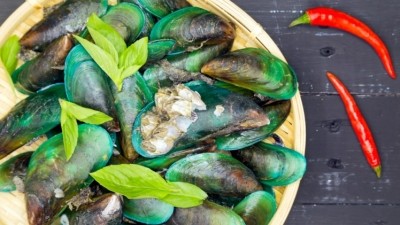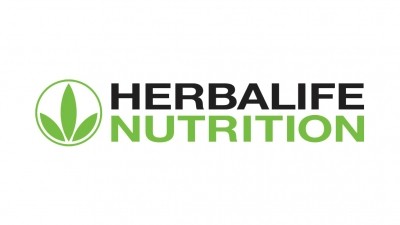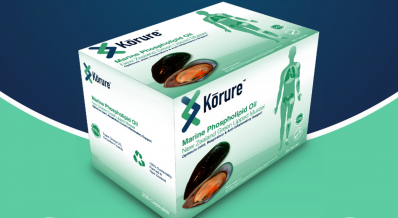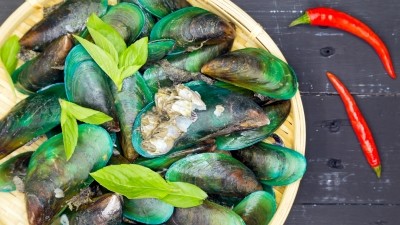Kiwi marine ingredient supplier targets Asia and US with new nutraceutical brand

The company, which is known for its greenshell mussel powder, has so far been supplying sustainably sourced marine ingredients — derived from greenshell mussels, scampi, arrow squid and various species of fish — to other brands, but recently announced its own consumer brand, Sea to Me.
The brand currently carries just one product, Sea to Me Active Inflammation Management capsules, made entirely from Sanford's signature greenshell mussel powder. The capsules come in bottles of either 60 or 120, and are to be taken twice daily.
From trash to treasure
According to CEO Volker Kuntzsch and chairman Paul Norling, Sanford's business development is "predominantly focused creating new opportunities for mussel derivatives and finding new uses for marine resources" that are typically considered waste products.
Speaking to NutraIngredients-Asia, business development manager Adrian Grey said launching the Sea to Me brand was a "natural progression" for Sanford, especially since it had doubled its production capacity at Enzaq, the Blenheim-based mussel powder manufacturer and exporter the firm acquired in 2017.
To facilitate this increase, Sanford added a second dryer to its Enzaq facilities; it intends to add two more to support yet another 100% increase in production capacity in 2019.
Furthermore, the company is set to spend US$6.78m of a US$68m investment programme on innovation and nutraceuticals in its mussel operations over the next two years.
With these plans in place, Sanford is looking at entering the US and Asia, as both a marine ingredient supplier and a nutraceutical brand.
The power of mussel powder
Grey said Sea to Me's purpose was not just to introduce yet another anti-inflammatory supplement to the market, but also to educate consumers by "telling the greenshell mussel story".
"Mussel powder isn't very well known at the moment, but more research is being done around it. One of the reasons we launched Sea to Me even though we had just one product was so we could tell the greenshell mussel story and educate people on the benefits of this ingredient.
"We are well-placed to do that, as we source our mussels sustainably — New Zealand mussel is regarded as one of the most well-managed fish stocks in the world.
"We also maintain a very short supply chain, from harvest to the time we convert the mussels into powder — the whole process takes less than 24 hours."
He added that while there are plans to expand Sea to Me’s product range with supplements made from other marine ingredients, having the Active Inflammatory Management capsules as the brand’s first and only product would draw greater attention to greenshell mussel powder.
"When mussel powder sits among a range of ingredients within a brand's portfolio, it’s certainly not a very important product and is way below in the pecking order, and we want to collectively tell the world about greenshell mussel, as it's a powerful product."
More marine goodness
Sanford also plans to draw on its other marine ingredients to extend its consumer product range and expand into overseas markets.
One such ingredient is collagen extracted from hoki skin, which is used electro-spun into nanofibres that are used in skincare products like facemasks.
Beyond cosmetic and skincare purposes, hoki collagen can also be used to develop dietary supplements in soft gel, capsule and water-soluble formats.
Another ingredient with nutraceutical potential is fishbone calcium, which can be used in capsules consumed to support bone and joint health.
Grey said, "One of the reasons we use hoki for our collagen is that it has one of the largest yields of the ingredient, compared to other fish.
"Often, other types of fish present very small yields when collagen is extracted from them — the same tends to be true for fishbone calcium — but with hoki, we can get a reasonable volume of the ingredient.
"For our fishbone calcium, we might use a mix of different species of fish to keep the volume up. Our decision on which brands we will supply this ingredient to will depend on their products and their commercial viability.
"As long as we aren't competing and we are selling to complementary brands, we'd be happy to supply them."
Selling a story
While Sanford is open to selling its consumer products in health food stores, it prefers to establish a direct connection with customers via its own website and through social media.
Grey revealed that the company has its eye on the US and Asia in terms of overseas expansion, saying, "We've already done some consumer research in the US, especially in California, where people have adopted a 'natural products first' approach to buying food and supplements.
"There are certainly also opportunities in Asia that are not necessarily country-specific. When we look at our opportunities, there's no reason we wouldn't go to Australia, although the New Zealand sustainability story resonates really well in countries further afield, such as in Asia and the US.
"Australia already has a similar story around its own ingredients, and we feel our brand story may be more well received in other markets — we believe we can get traction a bit quicker in Asia and the US."
For now, Sanford's focus remains fixed on the US and Asia, with a more definitive list of Asian countries to be determined when the firm has a clearer picture of the region's different markets.
Grey said, "Once we launch in a market, we want to make sure we can meet consumer demand. Asia and the US are big markets, and in a global context, the amount of product we produce is still quite small.
"Because of this, we don't want to over-promise, or oversubscribe ourselves. We want to remain true to our brand proposition, and to what we have promised."











